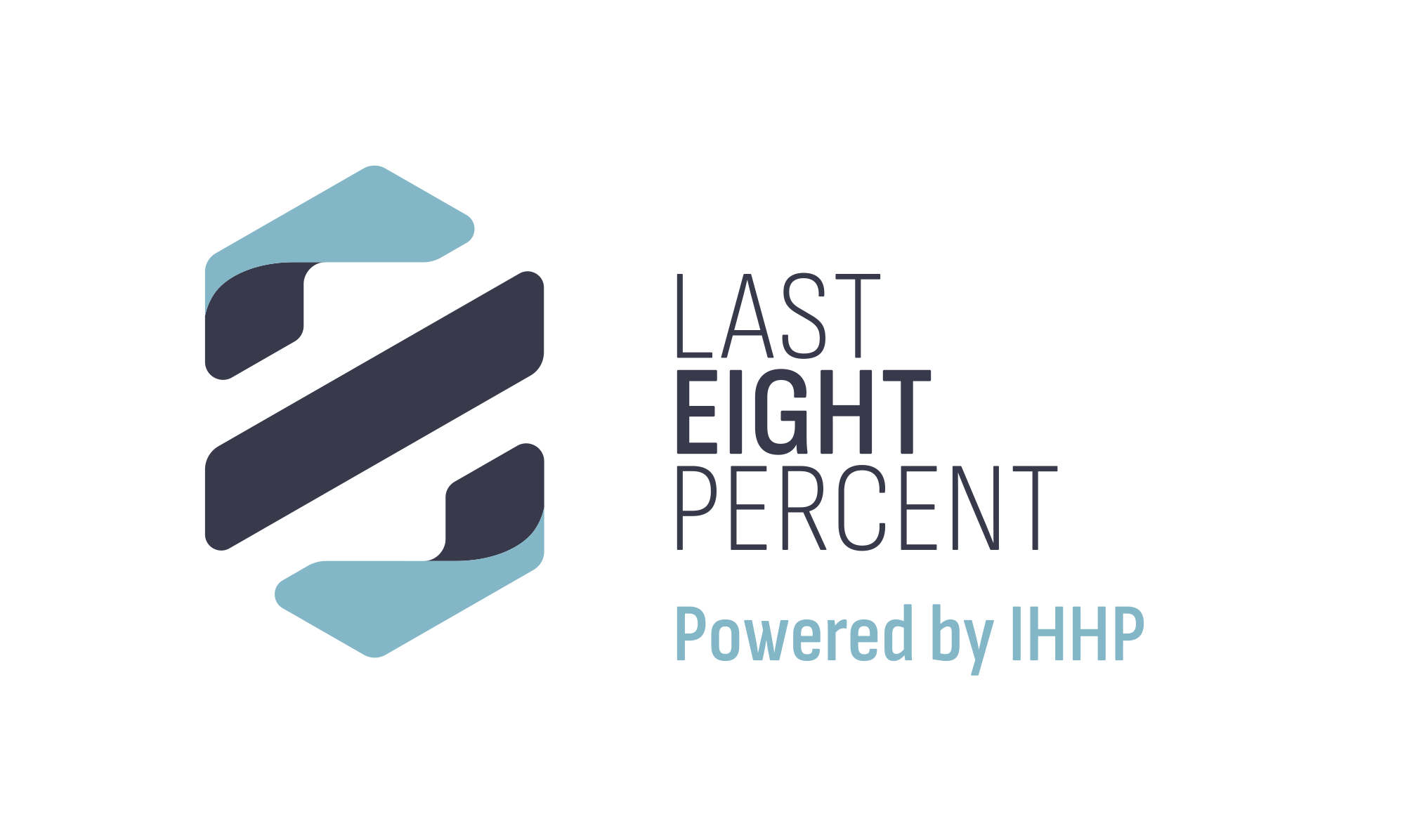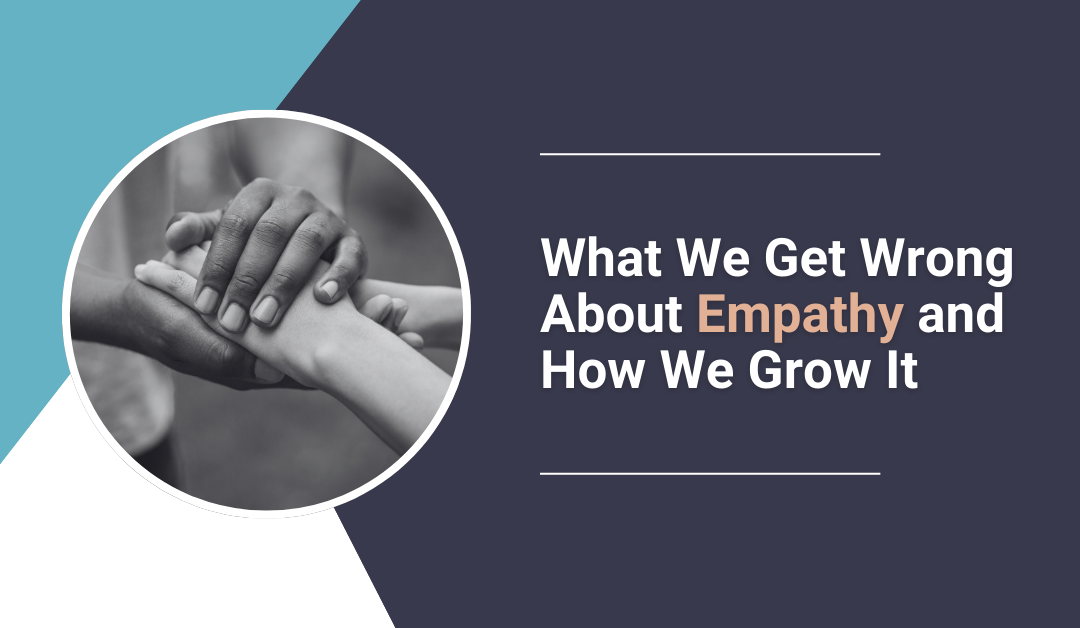There are three common misconceptions about empathy:
- It makes us soft, unable to make tough calls, or be a strong leader.
- Empathy is a static quality
- Women are far more empathetic than men.
We’re here to dispel these myths. Breaking them apart helps us make empathy one of our superpowers, with huge benefits at home and at work.
Myths Surrounding Empathy
For a long time, we have believed that empathy, like I.Q. or personality, is immutable, a trait we have no control over. There’s an irony here, though. When we believe empathy is a fixed trait, it becomes a self-fulfilling prophecy and our empathy does not change. In other words, if you believe you cannot change your empathy, you will not grow it.
Having a growth mindset, however, helps us to actually change this. A great way to think about empathy is to see it as a muscle, something that becomes stronger the more we work at.
There is also the belief that if we are too empathetic, we will go soft and fail to make tough calls or have the hard conversations required to be effective. This is patently incorrect. It is important to remember that empathy merely means that we are trying to understand other people – and does not speak for the action we take afterward. Empathy does not mean we are condoning someone’s beliefs or actions. We can focus attention on trying to understand someone and still be strong in our actions afterwards. In fact, it can help us form a better response.
Finally, there’s a myth that biologically, women have more empathy than men. This is incorrect. Men and women do not differ in their ability to detect other people’s emotions. In other words, they start biologically equal – the only difference is in social norms.
Women are often told that they are naturally more vulnerable and empathetic, and that they value empathy more than men. Likewise, men are often told that they are colder by nature, and less caring. Because of this societal messaging, we see differences in levels of empathy by gender not because it is biological but because it is taught, and then developed or (or not) from there.
Benefits of Empathy
Empathy is the ability to understand what someone is feeling and the impact we might have on them, and then choosing our action with greater insights about the other person.
We often hear that empathy is about helping other people, which it can do. But it’s important to remember that empathy helps us too. There’s a ton of research to back this up. When we’re more empathetic, we become happier, less stressed, and less depressed. Why is this? Mostly because we become less self-referential and less focused on ourselves.
We see huge benefits in the workplace too. We become better negotiators because we find ways that meet other people’s needs and still meet our own. We are better at keeping relationships, which allows us to grow our careers as relationship-building mediates so much of career success.
- Patients whose physicians are more empathetic listen and follow instructions more closely, which increases the efficacy of treatment.
- Employees with more empathetic managers will call in sick less often.
- Waiters who are more empathetic earn almost 20% more in tips.
- Debt collectors with more empathy recover twice as much debt.
- In a study of the makeup company, L’Oreal, the best empathizer sold nearly $100,000 more per year than their colleagues.
As we can see, there is such value in empathy. Empathy is something that is a muscle; with real intention and commitment, it can be developed and become one of your superpowers.
How to Grow Empathy
First, we need to manage our emotions because it is emotions that get in our way. We’re experiencing a lot of burnout right now and this can cause us to have precious little energy left to be able to tune into others. When we start to get overwhelmed and our strong emotions get the best of us, the emotional part of our brain, the limbic system, takes over. We become focused on our own survival and are not tuned into others. Learn more about how to manage difficult emotions in our podcast.
We need a different part of our brain in charge, and that is our prefrontal cortex. It is this part of our brain that has executive function, long term thinking, and the capacity to empathize with others.
How do we put the prefrontal cortex in change? In our Last 8% Morning podcast, we start with a mindfulness morning routine (learn more in the episode, Building Our Mindfulness Practice), and gratitude. Having gratitude facilitates long term thinking, making people more likely to delay gratification and sacrifice for others. With our prefrontal cortex in charge, we are better able to build a bridge between ourselves and others.
In our interactions, we use the metaphor of the bridge to envision each person’s perspective. For many of us, we are stuck on our side of the bridge and view things from our own lens, which is shaped by our assumptions, modeling, and life experience. If we think that everyone sees things similarly to us, we can dismiss them when they don’t.
But we have to walk to the other side of the bridge, and build the bridge, step-by-step backwards towards ourselves. This takes deep humility. We use the WAV model.
How do we build #empathy? We use the WAV model, which helps us build a bridge to others:
— last8morning (@last8morning) June 25, 2020
W: Willingness to Listen
A: Ask Questions
V: Validate
Take a listen to the full episode here: https://t.co/b6zbkJHxTA#EmotionalIntelligence #ThursdayMotivation #Mindfulness pic.twitter.com/x6lTQLvgZD
We start with a Willingness to listen, feeling curious and humble approaching their experience.
The second step is to Ask questions. There are many reasons to do so, but the most important is that most of us jump to judgment based on less than 5% of available information. We need to ask questions to get more information. This often allows the other person to take a step from their side of the bridge, as they feel heard.
The final step is to Validate, asking questions such as: is this how you are feeling? Is this how you are thinking? What is important to you? We validate those feelings.
Again, this is not about agreeing or being a people-pleaser. Working backwards from their side of the bridge enables us to build a deep well of empathy that helps us connect with others and manage conflict. If you would like to learn more about these skills, we hosted a series on Empathy on the Last 8% Morning podcast, with episodes What We Get Wrong About Empathy, What Gets in the Way of Empathy, The Key Ingredients to Tune into Others.

About the Author
Dr. JP Pawliw-Fry is one of the founders of IHHP. He co-wrote the NY Times bestseller, Performing Under Pressure, and is sought out by Fortune 500 companies as a keynote speaker. If you want to hear more about how to manage stress and pressure, subscribe to his podcast Last 8% Morning on Apple, Spotify, and Stitcher.

